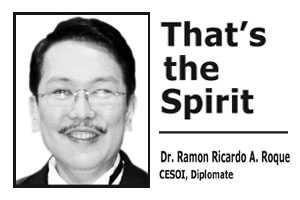PRESIDENT Rodrigo Duterte recently signed into law Republic Act No. 11261 or the “First Time Jobseekers Assistance Act.” The law provides for the waiving of fees or charges on documents that first time jobseekers need and that are issued by different government agencies.
This law is clearly responsive to the needs of first time jobseekers who have to spend a few thousand pesos for the fees charged by government agencies for certifications, clearances and registration like barangay clearance, police clearance, National Bureau of Investigation (NBI) clearance, medical certificate issued by a public hospital, transcript of records issued by the state college or university, birth certificate, tax identification registration, and the Unified Multi-Purpose Identification (UMID).
While some may see this law as a policy that effectively forgoes some revenues derived by the government through the collection of certification, clearance and registration fees, the law is consistent with the true spirit of public service, the provision of which is funded from government revenues.
This is a good example of how government should serve the interest of the public without the need to “earn” revenues.
The law can also be regarded as an investment because it facilitates better productivity of Filipinos through their gainful employment.
The enactment of this law also brings to light the need for our government to rationalize the current systems of collecting fees and of the government-issued certification, clearances and records.
Should a barangay clearance, for example, be a requirement for the issuance of police clearance? Is there really a need for the issuance of a police clearance in addition to an NBI clearance?
Given today’s technology, a document that will provide information on the character or criminal history of an individual can be issued by just one agency, like the NBI.
What’s the difference between a birth certificate issued by a local civil registrar and that of the Philippine Statistics Authority (PSA), when the certificate issued by the latter is a just a “reproduction” of the one issued by the former? The paper with security features used by PSA does not justify the duplication of documents because local civil registrars can be mandated to use the same kind of paper. Are the certifications issued by local civil registrars doubtful and with lesser integrity than those issued by the PSA?
What is really the basis for the collection of fees for government-issued certifications and clearances? Are fees collected to defray the expenses of issuing the same or to earn revenues for the government? Is it really in the better interest of the Filipino public for government to earn revenues from such fees than reducing such fees to cover just the cost?
Just asking.


